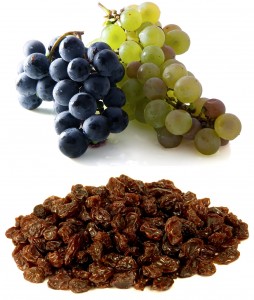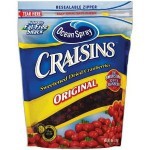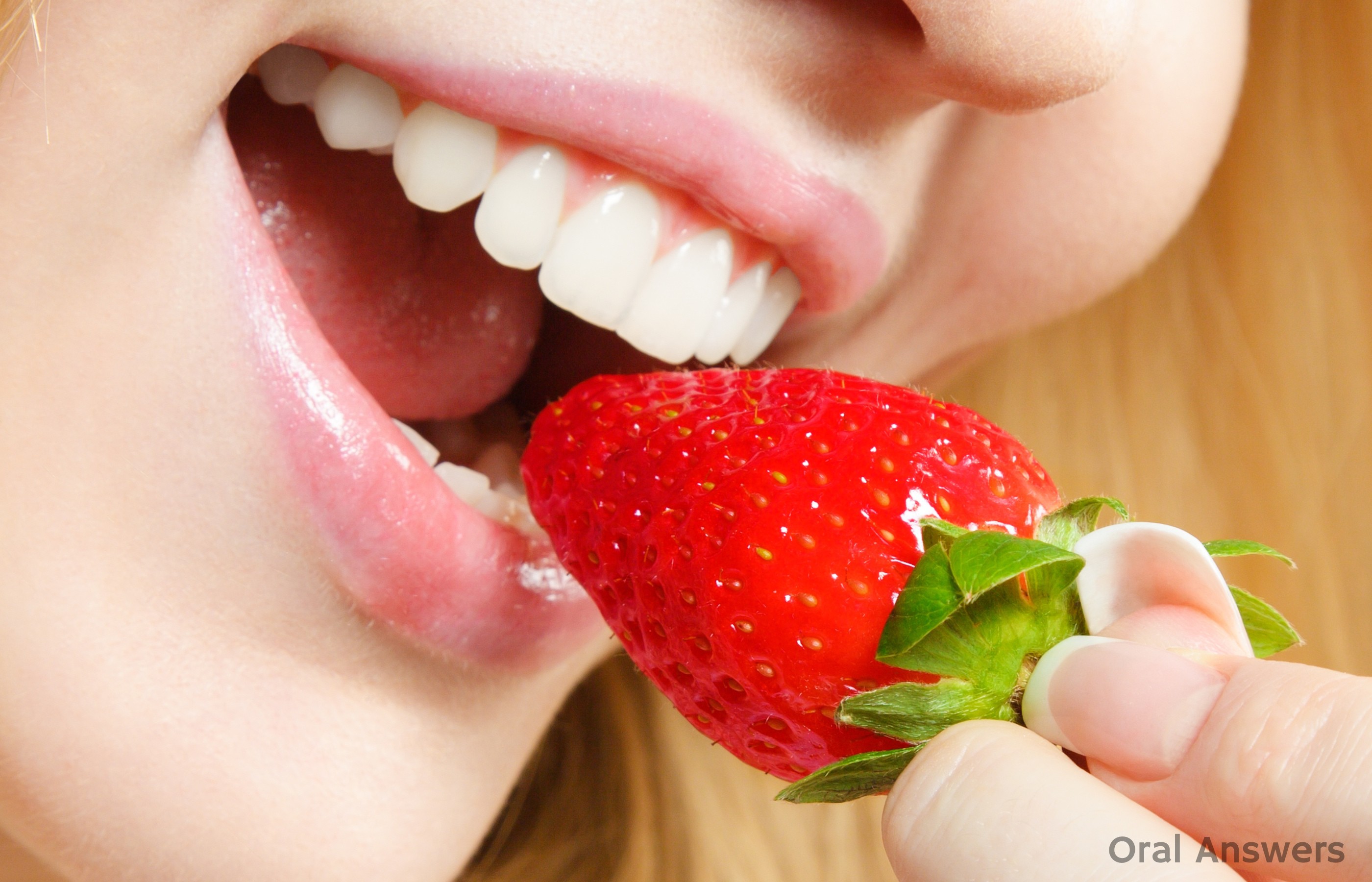Many people have asked me whether or not fruit is bad for your teeth. The answer is that it depends. We all know that the main reason people like fruit compared to vegetables is because of the sugar. The question is, does the sugar in fruit cause tooth decay?
There are six main ways that we eat fruit:
1 – Fresh fruit
2 – Frozen fruit
3 – Canned fruit
4 – Fruit juice
5 – Dried fruit
6 – Preserved fruit, such as jellies and jams
Is Fresh Fruit Good for Your Teeth?
 It might seem counter intuitive to think that a food with lots of sugar is good for your teeth, but fresh fruit is good for your teeth when consumed as part of a balanced diet. In this review paper talking about diet and cavities, the authors stated the following:
It might seem counter intuitive to think that a food with lots of sugar is good for your teeth, but fresh fruit is good for your teeth when consumed as part of a balanced diet. In this review paper talking about diet and cavities, the authors stated the following:
In experimental conditions in which fruit is a major dietary
constituent, fruits may participate in the caries process;
however, as consumed as part of the mixed human diet
there is little evidence to show fruit to be an important
factor in the development of dental caries.
If you eat fruit and only fruit all day long, then it may not be too good for you. This study showed that when fruit is eaten very often (as in 17 times per day!), that fruit can start to cause cavities.
Just use common sense by eating fruit as part of a balanced diet and you’ll be fine. Fresh fruit also provides valuable vitamins that can even improve your oral health.
Is Frozen Fruit Good for Your Teeth?
While researching through academic literature for this article, I couldn’t find anything that differentiated frozen fruit from fresh fruit. However, since many people do eat frozen fruit, I thought I would mention it.
Until different studies and experiments are conducted, I would say that frozen fruit is about as good for your teeth as fresh fruit. Frozen fruit is certainly much better than any of the other forms of fruit mentioned below.
Just make sure that the food manufacturers have not added additional sugar to the frozen fruit to make it more pleasing to your taste buds (but more detrimental to your teeth). For example, many companies sell frozen fruit bars that have fruit in them with extra sugar.
Is Canned Fruit Good for Your Teeth?
Canned fruit can be good for you! You do need to be careful though. Most canned fruits on the market today are bathed in a sugar-rich heavy syrup. Due to this added sugar, canned fruit can be very harmful to your teeth.
Before eating canned fruit, look on the ingredients label to see if it has added sugar. Most canned fruits will also say “In heavy syrup” or “In light syrup” on the label. This is a giveaway that these products contain excess sugar. While rare, you may be able to find canned fruit with “no added sugar”.
Interestingly, every patient that comes into our dental school for comprehensive treatment has to take a diet assessment analysis. One of the questions asks whether or not they eat canned fruit frequently. This helps us determine how “at risk” they are for getting cavities.
Is Fruit Juice Good for Your Teeth?

If you take away the most nutritious parts of a fruit, what are you left with? Sugar water and natural flavors – AKA: fruit juice.
When a fruit is juiced, all of the sugar comes out of it and into the solution of juice. This sugar is no different than much of the sugar that is in candy today.
The American Academy of Pediatric Dentistry even recommends restricting the amount of fruit juice that you give your small children to less than one cup per day. They have recognized the devastating effects that fruit juice can have on kids’ teeth. I’ll cover this topic more in a future article, but recognize the importance of limiting fruit juice intake.
Is Dried Fruit Good for Your Teeth?

Dried fruit is a very convenient, portable snack. It wouldn’t be a very bad alternative to fresh fruit if it weren’t for one thing: Dried fruit is not good for your teeth. I was able to come up wtih four main reasons why.
1 – The sugar is super-concentrated. When you dry fruit, almost all of the water is lost, but no sugar is lost.
2 – Dried fruit is very sticky. I used to eat dried mangoes all of the time and found that they kept getting stuck in my teeth.
3 – When fruit is dried, it releases a lot of the intrinsic sugars from inside of the fruit. These  sugars are then available to feed the bacteria in your mouth, which can hurt your teeth.
sugars are then available to feed the bacteria in your mouth, which can hurt your teeth.
4 – Dried fruit often has added sugar. This is another one of the ways that manufacturers can sneak sugar into our diet. Popular dried fruit like Craisins Dried Cranberries and many brands of dried mangoes contain added sugar.
Are Jelly and Jam Good for Your Teeth?
Jellies and jams aren’t good for your teeth at all. The fruit is usually cooked, releasing lots of the intrinsic sugars and removing lots of water. Then, this mixture is thickened and bombarded with sugar.
Jelly and jam might not be so bad, but we usually eat them by putting them on bread. When a mixture of jam and bread gets stuck in our back teeth, it can feed the bacteria in our mouths for a long time until our saliva finally rinses it away.
Conclusion
Fresh fruit is best for your teeth. Fresh fruit is also very portable as it usually comes in its own natural wrapper. Try to limit fruit juice, dried fruit, and jellies and jams.
Remember, it is important to eat a balanced diet.
Do you have any questions or comments on fruit and your dental health? Leave them below in the comments!

What are intrinsic sugars? I have never heard of them before and am confused as to how they are different from regular sugars found in fruit.
Hi Janna,
Intrinsic sugars are sugars that are found naturally in products. For example, the sugar found in fruit and the sugar found in milk are both intrinsic sugars. Intrinsic sugars are great to eat. Studies have found that when people eat a lot of extrinsic sugars, they start to get more tooth decay.
Extrinsic sugar simply refers to sugar that is added to a food, or makes up the food (such as hard candy.) Extrinsic sugars are found in so many products today such as ice cream, yogurt, dried fruit, tomoto soup, tic-tacs, and many other foods.
I hope that answers your question. Thanks for your comment!
Thanks for the article, this is something I’ve wondered about for awhile. You mentioned that jams and jellies are bad for your teeth – what about the low sugar and no sugar added varieties? My wife and I recently started buying a low sugar jam and we use it sparingly on our peanut butter and jelly sandwiches…just wondering if we should avoid it altogether.
Hi Doug, if you are going to eat jam, then the no sugar added variety is probably the best. One of the reasons jam is bad is because when combined with bread, it can stick down into the grooves on our molar teeth way back in the mouth. If you use no sugar added jam, then there won’t be nearly as much sugar delivered to the plaque to help them make a cavity.
Keep in mind that you can eat jam and jelly in moderation. Teeth are fairly strong, and our saliva has ways to heal our teeth when the plaque in our mouth dissolves them slightly. It’s important to limit the amount of times we eat sugary foods per day, to try to eat them with a meal, and to rinse out your mouth or chew sugar-free gum after eating to help wash away the sugar.
I hope that answers your question — if not, please leave another comment. Thanks!
This is good to hear!
I have been eating a lot of fresh and frozen fruits lately. I started taking candy out of my diet altogether not long ago. Now, the fruit is my treat. Whenever I have a sugar craving, I eat some fruit and it goes away. After doing this for a bit I hafve found that I don’t have very many sugar cravings anymore. It is great and I feel way healthier.
Thanks for sharing that, Jeniffer. I go in cycles where I’ll take candy out of my diet, and then I start eating it again. I have found though that I really don’t get too many cravings for sweets when I’ve taken them out of my diet for a few days.
Thank you. I feel a lot like when I go to the dentist they don’t want me to eat anything. The hygenist tells me that sugars are bad, but I guess it all depends on what you eat. If I ate candy all day, that’s a lot worse then just eating fruit. Thanks.
That’s true, Troy. We have to eat to stay alive. It’s just a matter of choosing foods that won’t hurt your teeth too much. Luckily, our saliva can naturally protect our teeth. Thanks for your comment!
I have just taken by 8 year old to the dentist and have been told she has chronic decay – she doesn’t eat lots of sweets, only drinks water. He has told that all fruit is bad – especialy grapes, and that swe should remove all fruit from the her diet along with puddings/cakes/biscuits/ice cream etc etc. What do you think about this food advice?
Is Dried Fruit Bad for Your Teeth? My dentist disagrees with you on this point. She says that, in looking at the effect of sugars on teeth, you have to recognise that there is a basic difference between fructose (the type of sugar in fruit) and sucrose (which leads to tooth decay): long before you could consume enough dried fruit to harm your teeth you would be suffering from diarrhoea!
What about drinking water with lemon? Is the acid in the lemon harmful to your teeth?
The lemon is highly acidic, however the water helps balance pH levels. A little lemon won’t do much harm as a) there’s far too much water, and b) how often you consume it plays an important factor. Hence it would take an awful lot of lemon to do some damage. As they say, everything in moderation. If in doubt sip through a straw and swish with filtered water for 30 seconds afterwards.. you’re practically guaranteed no residue and your mouth will feel nice and fresh. Don’t be tempted to brush your teeth straight after consuming the lemon water as this isn’t needed and will make it worse (you’d be brushing any debris inside your mouth, into the enamel). Wait at least around 45 mins. In most cases the water will rinse the lemon away and you won’t need to brush.
What about fruit puree? In theory, it has all the same nutrients as fresh fruit does, but the way we consume puree is different from whole fruit. With whole fruit, there is chewing and saliva production and other “signals” to your body. The consumption of puree however is behaviorally different (just as juice is behaviorally consumed different, mainly by sucking, which is bad) but are the effects on teeth decay significantly different from that of the consumption of whole fruit? One would think “probably” because of the lack of chewing …
[…] Jams and jellies are loaded with sugar and have a very sticky texture; this combination encourages plaque and bacteria growth, especially when eaten with bread, as they usually are. If you can skip or limit consumption of […]
i never had trouble with stains on my teeth but since i started a diet in march eating plenty fruits, i had stains when i went to dentist last week. also have been drinking plenty of drinks made from those little packets that are added to bottled water.
could this be where the problem of stains on teeth come from?
please advise.
thanks
Thanks for sharing
Actually I visited article because I am suffering toothache immediately after Bread jam sandwich only and I was confused and worried what is happening, now I got the answer. Thanku, now I m not gonna eat it again.
Thanks and regards, bless u
Hello I have a question please, I ate dried fruits and my crown fell, is it a hurry to go to the dentist and is it an easy process to glue it back? thanks a lot